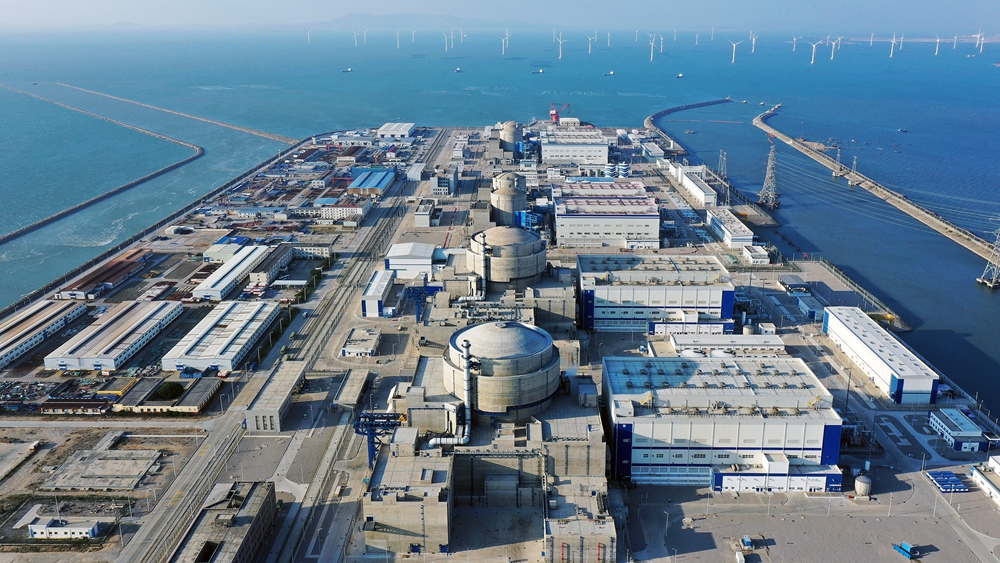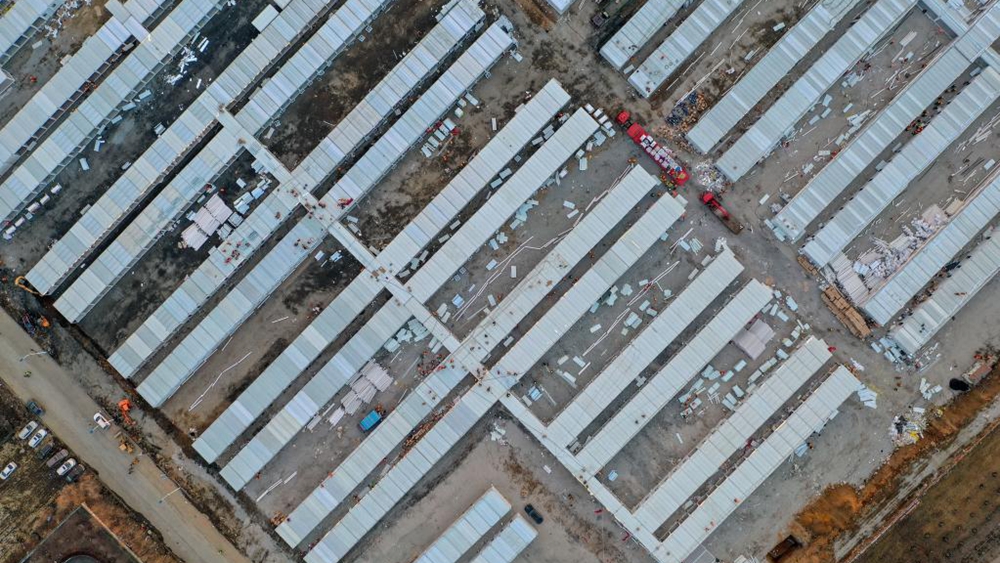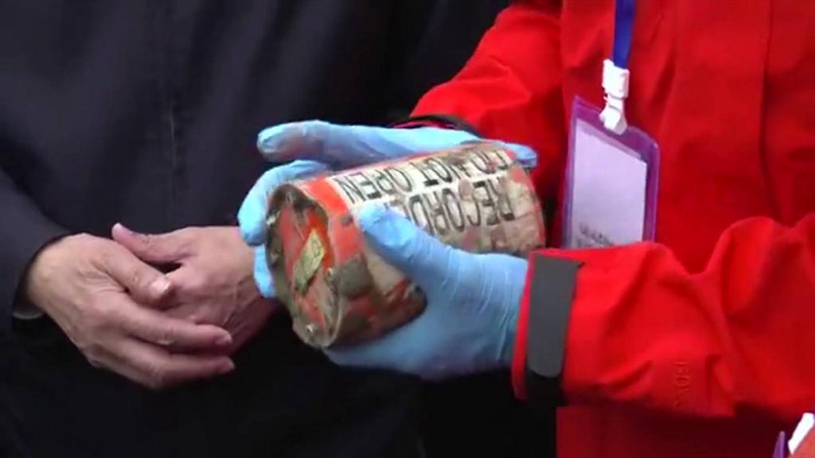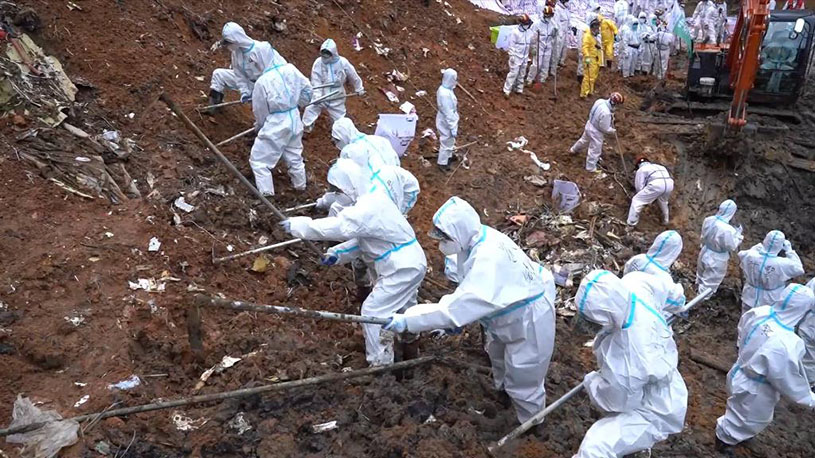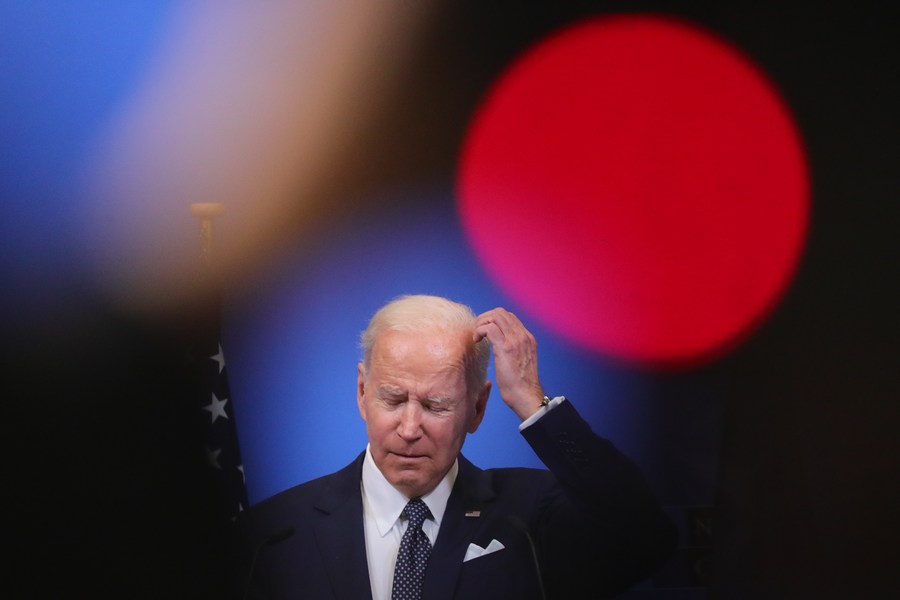
U.S. President Joe Biden attends a press conference at the NATO Headquarters in Brussels, Belgium, March 24, 2022. (Xinhua/Zheng Huansong)
For Europe, a failure to peacefully coexist with neighbouring Russia may spell ages of challenges and woes. "Everybody is convinced that Europe is in danger."
For U.S., a weaker Europe serves its interest. The Russia-Ukraine conflict has offered the country an opportunity to reinforce its dominant role in the European security order, and possibly revive the so-called "American Era."
BEIJING, March 27 (Xinhua) -- Prior to U.S. President Joe Biden's visit to Europe, a display of "unity," the European Union rolled out a "Strategic Compass" as a guide to strengthen the bloc's security and defense policy.
The plan of action, ratified on Monday, is widely seen as a move for the EU to cut dependence on Washington for defense, and realize strategic autonomy amid a deteriorating security environment, as a conflict has been flaring up between Ukraine and Russia.
"Today I think everybody is convinced that Europe is in danger," Josep Borrell, the EU's high representative for foreign affairs and security policy, addressed a recent press conference.
In fact, it is Washington that has dragged Europe into this dangerous quagmire.
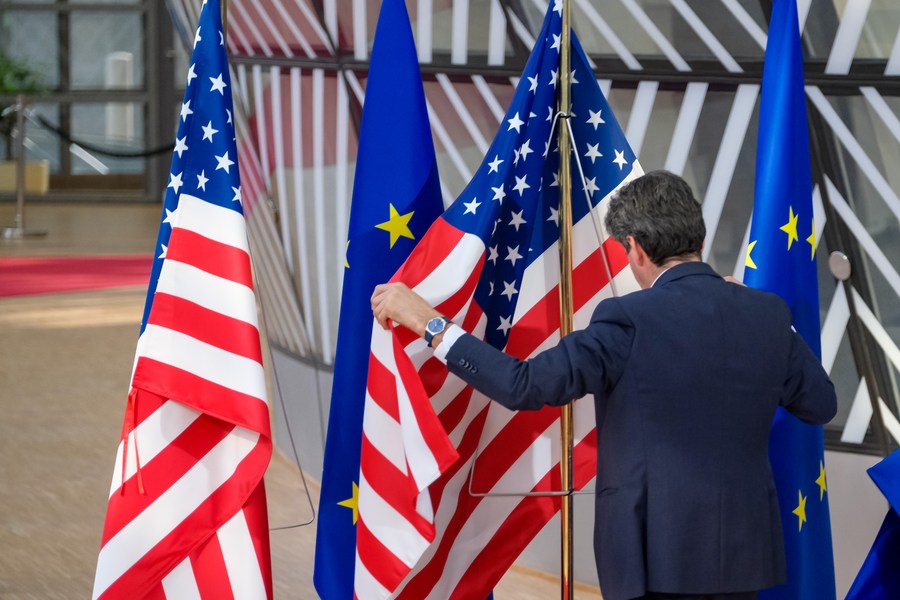
A staff member hangs a U.S. national flag before U.S. President Joe Biden arrives for the European Council meeting in Brussels, Belgium, March 24, 2022. (Xinhua/Zhang Cheng)
The United States, in utter disregard of Russia's legitimate concerns, drove five waves of NATO expansion eastward all the way to Russia's doorstep, incessantly squeezed Russia's security space and challenged the country's strategic bottom line until a military conflict broke out between Russia and Ukraine.
Following the outbreak of the Russia-Ukraine conflict, Washington has rushed to fan the flames, pushing other Western countries to join it in providing Ukraine with money and weapons, and pound Russia with all-round and indiscriminate sanctions.
Analysts say that for Washington, the fallout of an escalating Russia-Ukraine conflict is well foreseeable, but nearly painless, because it does not bear the brunt.
Europe does. Now the pain has become increasingly acute -- soaring food and energy prices, mounting security concerns and a sudden influx of refugees, among others -- a heavy price to pay.
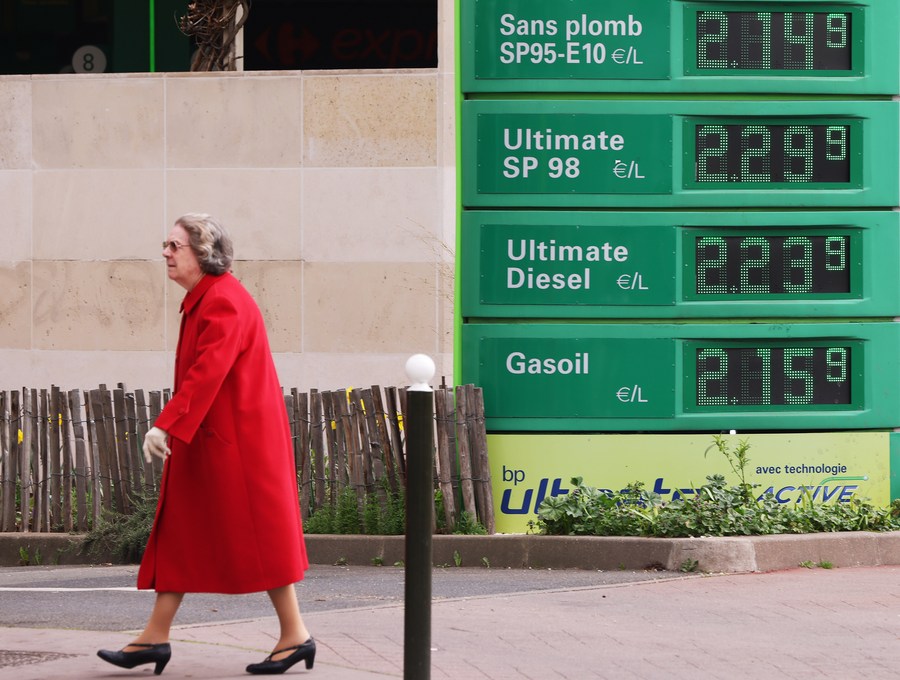
Fuel prices are displayed at a gas station in Paris, France, March 16, 2022. (Xinhua/Gao Jing)
A weaker Europe also serves U.S. interest. In the wake of America's botched withdrawal from Afghanistan, many Western political pundits predicted that "the American era is ending."
The Russia-Ukraine conflict has offered the United States an opportunity to reinforce its dominant role in the European security order, and possibly revive the so-called "American Era."
And it seems that Washington's fear-mongering has worked. Some Europeans countries, despite having no strong will for Ukraine's NATO accession, have beefed up their national defense since the conflict, convinced that the Ukrainian crisis is a security crisis for Europe as a whole and NATO is what they can count on.
"The Russian invasion has bonded America to Europe more tightly than at any time since the Cold War," the New York Times opined in a recent article.
Perhaps the Europeans need to seriously rethink whether a wantonly expanding NATO is truly conducive to peace and stability in Europe in the long run. The newly approved "Strategic Compass" offers a clue that the EU is well aware of its need of stronger strategic autonomy, not weaker.
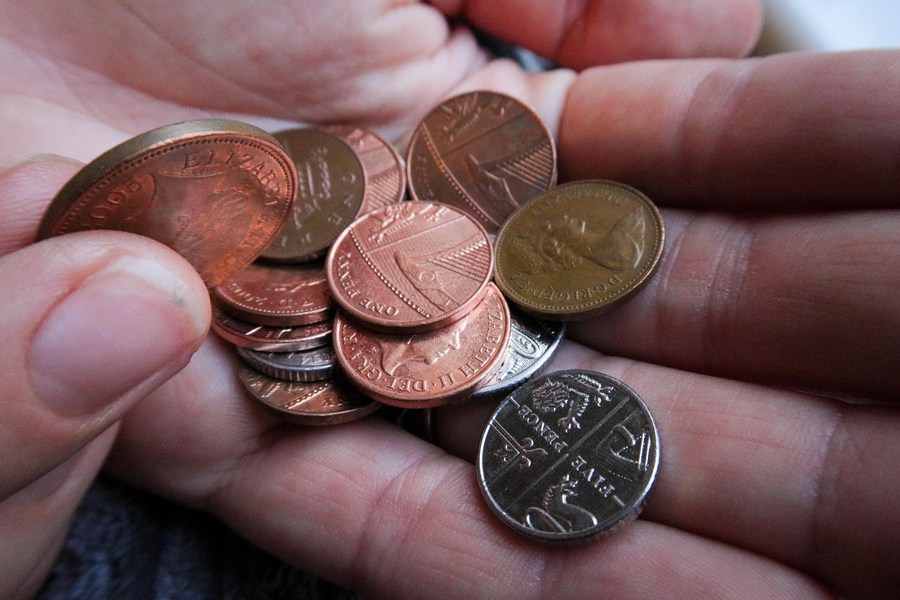
Photo taken on March 23, 2022 shows British coins in Basingstoke, Britain. (Photo by Tim Ireland/Xinhua)
After all, Europe is Europe, not America. A failure to peacefully coexist with neighbouring Russia may spell ages of challenges and woes.
Unlike the United States, Europe can not afford an immediate ban of oil and gas imports from its traditional key energy supplier of Russia, as was recently signaled by the French presidential palace.
From long-arm jurisdiction over European enterprises to slapping tariffs in the name of "national security," a self-serving Washington barely hesitates to throw allies under the bus if needed.
Thierry de Montbrial, founder and executive chairman of the French Institute for International Relations, said that the Russia-Ukraine conflict awakens Europe to the importance of "taking its destiny into its own hands."
The time has come for European policymakers to sober up to the high-stake reality. They need to reposition the EU in terms of defense, and truly obtain strategic autonomy so that they can steer the bloc towards a more secure future. ■


